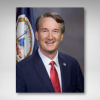The Youngkin Administration is trying to jumpstart the creation of independent public charter schools in Virginia, in order to provide students additional high-quality options for their education.
This effort is long overdue. But the road to quality choices in Virginia is a steep climb.
First established in Minnesota 32 years ago, more than 7,800 public charter schools now serve 3.7 million students – eight percent of all public schools in the United States. Charter schools also attract diverse student populations (29 percent white, 24 percent black, 36 percent Hispanic) and because they are not bound by public school boundaries, each school often attracts a more diverse population both geographically and racially. Public charter schools also better deliver the goal of quality education.
Stanford University’s Center for the Study of Educational Outcomes (CREDO) has studied charter school performance for 15 years. In a study published last year comparing two million charter students with two million comparable traditional public school students, the center noted that in reading and math charter schools provide stronger learning for students, with reading advancing by an additional 16 days and math an additional six days each year.
Those are badly needed outcomes for educationally at-risk children. But here in Virginia, only seven such schools exist today.
Public charter schools are designed to be publicly-funded, free to attend, and run by independent contracts – not by the local school system with “one-size-fits-all” regulatory schemes. Often, charters provide a specialization that public school systems choose not to offer.
Instead, charter operators create an agreement with the local school system to meet certain benchmarks. If a charter fails to achieve its goals, it runs the risk of being shut down. This is the core of accountability in the charter school world – if they fail to educate children, they might have to cease operation … unlike traditional public schools, which often operate for years without being fully accredited and, in the process, fail to prepare the students in their classrooms.
Consider, for example, Petersburg City, where most schools have not been fully accredited more than twice in a row for the last ten years, and where only 39 percent of fourth graders can read on grade level. The children there deserve better.
So why have public charters failed to take off in Virginia?
The primary obstacle is a provision in the Virginia Constitution, written long before charters existed, giving manifest power to local school boards for “the supervision of schools in each school division.” The issue has been litigated more than a dozen times in the past hundred years, and each time, state courts have affirmed that local school boards have absolute authority over budget, curriculum, personnel, and buildings.
While the state Board of Education reviews applications, they cannot approve them. This means the local school board – the only entity empowered to authorize public charters schools – can deny a public charter application for any reason whatsoever with no oversight judging the validity of the denial.
Washington Post education columnist Jay Mathews long ago nailed the problem on the head in writing about the proposed Fairfax Leadership Academy. Endorsed by six local Members of Congress and the General Assembly, the Fairfax County Federation of Teachers, United for Social Justice, The Washington Post, and the Business Roundtable, teachers organizing the charter proposed a grade 7-12 school providing an extended school day and year, a smaller learning environment, wrap-around services to students and families, and individualized and workforce-oriented programs — focused on dual enrollment, mentorship, career exploration and service learning — to students from mostly low-income and minority families.
Wrote Mathews: “There are no public charter schools in Fairfax County….There are no public charter schools anywhere in Northern Virginia. Every attempt to create one of those independently run public schools has died. Virginia law gives local school boards the power to veto charters in their territory. They usually don’t like charters because they might make regular public schools look bad.”
Indeed, nothing can make a school board support an innovative charter school. In fact, nothing requires a local school board to even choose: Fairfax killed it by not voting at all.
Fairfax is not alone. Rural Rockbridge County rejected the Buffalo Creek Charter application submitted by parents who wanted to seek the re-opening of the local elementary school the school system had closed. The Board declined to discuss the proposal in open session. In urban Hampton, the school board pulled the rug out from under Hampton University’s proposal for a charter after first encouraging the university to spend $500,000 for renovations on a college building to be used for the school.
And because there are so few real public charter schools in Virginia they are subject to fabrications and distortions. The Chair of Fairfax County Board of Supervisors, in an email to constituents pithily entitled “Why do Republicans HATE public schools?” referred to charter schools as the “usual tricks” and “experimental programs,” despite the existence of thousands of charters elsewhere with millions of students. There are no experiments or tricks. Just schools that work.
But it, and other communications from elected officials set the tone of the debate. And with no examples close by to point to, it is easy to demonize the unknown and delegitimize the successful.
How to fix the problem?
As a first step, State Board of Education President Grace Creasey appointed a revitalized Charter School Standing Committee, composed of actual charter school practitioners able to offer practical assistance to applicants. These include the Founders and former or current CEOs of two successful charter schools, the former president and CEO of the National Alliance for Public Charter Schools and the former president and CEO of the Thomas Jefferson Institute (Full Disclosure: Me).
Many previous charter applications were less than professional, pulled together by parents and community members frustrated by their local school systems. Yet, even the most sympathetic state staff knew very little about what it takes to run a successful independent public charter school and could provide limited advice. These appointments seek to offer a more collaborative experience and provide a resource that can counsel potential applicants.
The Administration would also benefit by reviving legislation introduced in 2017 by Senator Mark Obenshain (R-Harrisonburg), empowering the Virginia State Board of Education to create “Regional Charter School Divisions” in areas where schools have repeatedly lacked full accreditation.
These regional divisions would have their own school boards that can approve independent charter schools on their own.These boards would focus attention where it should be focused: Giving educationally underserved students a better opportunity rather than on preserving the status quo in perpetuity.
The bill was approved in the General Assembly. But despite the pleas of civil rights pioneer Wyatt Tee Walker to sign the bill “so that we can begin to throw a lifeline to the children we have left behind for far too long,” McAuliffe threw the rescue line away and vetoed the bill.
Independent public charter schools can offer incredible opportunities to educationally disadvantaged children: Just look at Success Academies, KIPP Academies or IDEA Public Schools.
But they will not come to Virginia and cannot help the children who need them so long as the decks are stacked against them. The Youngkin Administration’s effort is an overdue start at reversing that course.

Chris Braunlich is senior advisor to the Thomas Jefferson Institute for Public Policy, a former member of the Fairfax County School Board and former president of the Virginia State Board of Education. He may be reached at Chris@ThomasJeffersonInst.org.






